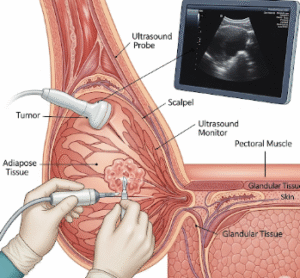Overview
Asperger Syndrome is a developmental disorder that affects how a person communicates and interacts socially. It is part of the autism spectrum but is often associated with average to high intelligence and no significant delays in language development. Individuals with Asperger’s may display intense focus on specific interests and may struggle with social cues, routines, or sensory sensitivities. In Korea, early intervention programs and tailored behavioral therapies are available to help individuals lead fulfilling lives.
What is Asperger Syndrome?
Asperger Syndrome is a neurodevelopmental condition formerly diagnosed separately but now included under Autism Spectrum Disorder (ASD) in the DSM-5 classification. People with Asperger’s typically have normal language and intellectual development but may exhibit challenges in social interaction, communication, and behavior. They may also engage in repetitive behaviors and have restricted interests.
While the term “Asperger’s” is less commonly used medically today, it is still widely recognized in education, support communities, and informal settings.
Symptoms
- Difficulty with social interactions and understanding social norms
- Trouble interpreting nonverbal cues like facial expressions or tone of voice
- Intense focus on specific topics or hobbies
- Repetitive behaviors or rigid routines
- Difficulty adapting to changes or transitions
- Speech may be formal, pedantic, or unusually fast/slow
- May prefer solitude or have few close friendships
- Sensitivity to light, sound, touch, or other sensory input
Causes
The exact cause of Asperger Syndrome is unknown, but it is believed to involve a combination of genetic and environmental factors. Key contributors may include:
- Genetic inheritance or mutations affecting brain development
- Prenatal exposure to certain medications or toxins
- Parental age at the time of conception
- Premature birth or low birth weight
Risk Factors
- Family history of autism spectrum disorders
- Male gender (more common in boys)
- Genetic conditions (e.g., fragile X syndrome)
- Prenatal complications or maternal infections
- Environmental stressors in early brain development
Complications
- Social isolation and bullying in school or workplace
- Anxiety, depression, or obsessive-compulsive behaviors
- Academic underachievement despite high intelligence
- Employment difficulties due to poor social skills
- Challenges with independent living in adulthood
Prevention
There is no known way to prevent Asperger Syndrome, but early diagnosis and intervention can significantly improve quality of life. Strategies include:
- Early developmental screenings
- Awareness and education for parents and teachers
- Supportive and inclusive school environments
- Timely referral to child development specialists
Treatment Options in Korea
South Korea offers structured and evidence-based care for individuals with Asperger Syndrome through specialized clinics, developmental centers, and educational support systems.
1. Diagnosis
- Multidisciplinary evaluation: Involving pediatricians, psychologists, speech therapists, and neurologists
- Behavioral assessments: Using tools like the Autism Diagnostic Observation Schedule (ADOS)
- Developmental history: Review of social, motor, and communication milestones
2. Behavioral Therapies
- Cognitive Behavioral Therapy (CBT): Helps manage anxiety, social challenges, and behavior patterns
- Social Skills Training: Group or individual sessions to improve communication and social interaction
- Applied Behavior Analysis (ABA): A widely used approach to modify specific behaviors
3. Educational Support
- Special education programs in mainstream or alternative schools
- Individualized Education Plans (IEPs) tailored to the child’s needs
- Speech and occupational therapy available in schools or hospitals
4. Parental Guidance & Support
- Parent training and counseling to help understand and support the child
- Support groups for families and caregivers
5. Medication (if needed)
- While there’s no specific drug for Asperger’s, medications may be prescribed for:
- Anxiety or depression
- ADHD symptoms
- Irritability or aggressive behavior
6. Transition and Adult Services
- Vocational training and job coaching
- University accommodations
- Adult autism clinics for continued support













